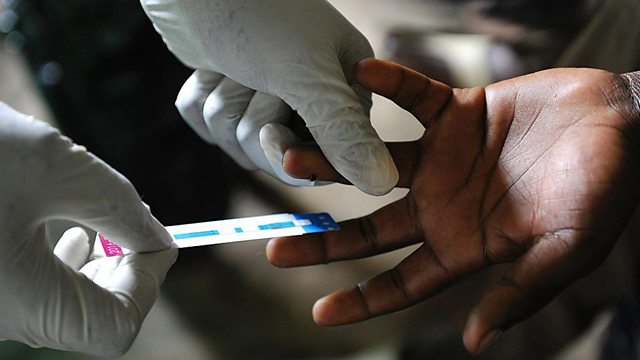
Health Advice for Gay Men When Homosexuality is Illegal
Health of Gay Men When Homosexuality is Illegal; Climate Change Confusion; State of the World’s Plants; Phone Metadata; Benefits of Bilingualism; Sierra Leone Post Ebola
How do you get health information out to gay men in countries where homosexuality is illegal? To mark the International Day Against Homophobia, Transphobia and Biphobia this week, the London School of Hygiene and Tropical Medicine has mapped the efforts made in four countries - Uganda, Kenya, Tanzania and Zimbabwe. It is too dangerous to use health information leaflets or other mass media, so one of the authors of the report, Dr Adam Bourne, explains what other options are available.
Climate Change Confusion
Climate change will affect everyone, and every living thing. How do we stay informed, and more importantly how can actions to help alleviate the effects of climate change be informed by evidence when the science is really technical. Adam Rutherford has been asking how anyone can make sense of the deluge of climate change data that is almost continually published. He talks to climate change expert Dr Tamsin Edwards of the Open University.
State of the World’s Plants
Recently a major new report on the State of the World’s Plants was unveiled at Kew Gardens in London. It is a comprehensive assessment of the diversity of plants on Earth, the global threats they are under, and the policies for dealing with them. The report states that there are some 391,000 vascular plants known to science – that is ones with vessels, xylem and phloem and those types of thing - and over 2000 were discovered last year alone. But just over a fifth of all plants are estimated to be threatened with extinction and global climate change forms part of this threat. Reporter Cathy Edwards met Professor Kathy Willis, Director of Science at Kew, to find out how plants are responding to the changing climate.
Telephone Metadata
A paper out this week looks into exactly what the act of making a phone call can reveal. The study, in PNAS, which was led by Patrick Mutchler and Jonathan Mayer at Stanford University in the States, is the culmination of work looking into what metadata really can show - you may have seen reports of some of their findings, as they've been revealing them in the public interest since 2013. They collected metadata volunteered by 823 participants, in total, more than 250,000 calls, and 1 million text messages. Stephen Murdoch from the Information Security Research Group at University College London joins Roland Pease to put this into context.
Benefits of Bilingualism
More than half the world speaks more than one language. New research is showing that being multilingual has some surprising advantages – it can help us keep healthier longer. Gaia Vince finds out how knowing many languages can protect our brains over our lifespan, and even stave off the appearance of some diseases, including dementia.
Post Ebola
Last November Sierra Leone was declared free of Ebola, the epidemic which killed more than eleven thousand people in West Africa. The speed at which it took off highlighted the poor state of healthcare in the affected countries. The international focus on the disease led to the creation of facilities to deal with the outbreak. And now the crisis has lessened, the main hospital in Freetown has made an accident and emergency department for the first time, using the clinic set up to deal with Ebola. The BBC’s Health correspondent Matthew Hill has been to take a look.
(Photo caption: A community health worker screening a patient in Kenya © Simon Maina/AFP/Getty Images)
The Science Hour was presented by Claudia Hammond with comments from Jason Palmer of The Economist
Editor: Deborah Cohen
Last on
More episodes
Previous
Next
Broadcasts
- Sat 21 May 2016 08:06GMTBBC World Service Australasia
- Sat 21 May 2016 22:06GMTBBC World Service except News Internet
- Sun 22 May 2016 01:06GMTBBC World Service Australasia
- Mon 23 May 2016 05:06GMTBBC World Service South Asia
Podcast
-
![]()
Unexpected Elements
The news you know, the science you don't

